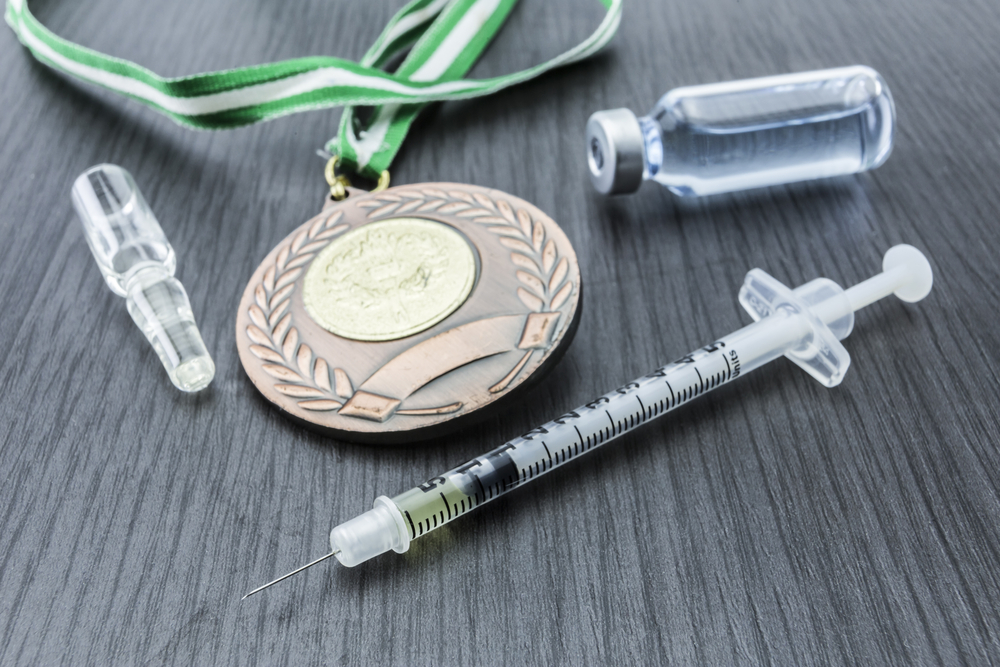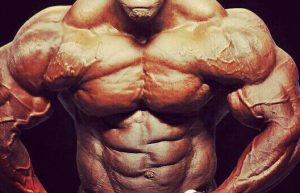
Anabolic-androgenic steroids (AAS) are derivatives of the male sex hormone testosterone.
Testosterone is responsible for the development of the male reproductive organs, bodyhair growth, deepening of the voice and increasing muscle and bone mass.
Boje (1939) was the first to suggest testosterone administration as a means to increase athletic performance. That was back in 1939. Their real breakthrough came in the early 1970’s, where widespread use of steroids in competitive sports was reported.
But it’s not just athletes. Steroids have become a “lifestyle drug” for individuals seeking the competitive edge. According to this research study from 2007, the median steroid user is 29 years old, has better education, and a higher income than the general population. (Fun fact of the day: Former US President John F. Kennedy received regular testosterone injections).
In the following, I’ll focus exclusively on testosterone and its derivatives (the OG’s). Although countless other performance-enhancing substances have gained popularity over the years, covering them all would breach the scope of this article.
The ergogenic effects of anabolic steroids:
– Improved body composition (more lean mass, less fat mass)
– Improvements in muscular strength and power
– Faster recovery rates
– Enhanced neural transmission (faster reaction times)
– Increased bone mineral density
Steroids have profound performance enhancing effects. You don’t even have to be an athlete to experience dramatic results. Research shows steroids improve body composition even in sedentary subjects.
Build muscle and get lean while sitting on your ass? Unlikely, but testosterone will definitely give you a head start. The medical field has long-since recognized the potential benefits of steroids in treating muscle wasting diseases such as AIDS, chronic obstructive pulmonary disease, and severe burn injuries (Shahidi, 2001).
“But what about the horror stories on the news about steroids causing X, Y and Z?”
As with every other performance enhancing substance (i.e. coffee), you start running into issues once you start abusing it. Side-effects such as elevated blood pressure, high cholesterol, organ damage, and heart disease are noted in cases of abuse (i.e. prolonged administration of supra-physiological doses), or genetic predisposition. Used responsively, and under medical supervision, the side-effects are largely transient.
“AAS abuse may induce exaggerated self-confidence, reckless behavior, aggressiveness and psychotic symptoms.” (Nieschlag/ Vorona, 2015)
Sounds like I’ve been on steroids my whole life, but no, I’ve never used steroids. With that said, I don’t demonize the use of testosterone per se. There’s a time and place for it.
The real downsides of steroids
Feeling tired all the time? Gaining weight? Can’t get it up anymore?
Testosterone replacement therapy (TRT) gives paying consumers legal access to steroids (granted, at much lower doses than used for performance enhancement). Showing up at your doctor’s office with complaints of low libido and general fatigue will oftentimes suffice for a TRT prescription. Testosterone administration is not risk free, however.
The body’s endocrine system is controlled by a tightly regulated feedback loop. When you raise hormone levels through artificial means, your body will lower, and in case of abuse, shutdown its natural production. As soon as you stop “outsourcing” testosterone, you will be met with lowered, and in some cases, total cessation of endogenous production.
Your body stops manufacturing testosterone naturally (-> testicular atrophy), and once you’ve kicked the hornets’ nest, it may take months, or years even, to reestablish proper hormone balance. In severe cases, lifelong supplementation of testosterone will be required.
When to take steroids
“I’m sick of training hard and not seeing any results…”
You’re trying to get big and strong, but natural means don’t give you the desired results? Suck it up and get real. Your inability to build muscle and/or lose fat is not due to a lack of steroids in your system. It’s due to your lack of knowledge, dedication and discipline.

If you’re discontent with your rate of progress, disregard mainstream fitness information, throw your supplements in the trash, and get on a real routine. Focus on the fundamentals, master the basics, get your diet and recovery in check and give it time.
Trying to look like a bodybuilder or make a living as a pro athlete? That’s a different story. Let’s face it, if you’re eyeing the pro scene, you must consider using additional “help”.
Again, I am not condoning the use of illegal substances, but if you need to look like a freak or perform at superhuman levels, you gotta do what you gotta do. No point in sugar-coating the facts.
But make no mistake about it, steroids are no short-cut to greatness. If you’re a lazy bum, don’t count on steroids to transform you into a physical specimen. You must be better than the rest before you contemplate taking anything. You must have paid your dues before you look for the extra boost.
If you’re in your first 5 years of training, or training purely for vanity reasons, you have no business even thinking about “juicing”.
Wrapping things up
Steroids have gotten a bad rap over the years. Some of it, definitely warranted. Most of the bad press, however, is nothing more than media scare tactics. Stories created by the uneducated for the uneducated.
Steroids aren’t bad. Steroids aren’t evil. It’s time you remove the blinders and look at the facts.
And for the record, stop regurgitating myths and biased information if you haven’t done your due diligence researching and educating yourself. Not only are you making yourself look like an idiot, you’re also actively contributing to the dumbing-down of society. Know what you’re talking about or shut the fuck up.
Thank you for reading
Victor
Resources
Boje, O. (1939) Doping. Bulletin of the Health Organization of the League of Nations 8, 439-469
Cohen J, Collins R, Darkes J, Gwartney D (2007). A league of their own: demographics, motivations and patterns of use of 1,955 male adult non-medical anabolic steroid users in the United States. J Int Soc Sports Nutr.
Hoffman, J.R., Ratamess, N.A. (2006). Medical Issues associated with anabolic steroid use: Are they excaggerated? Journal of sport science and medicine 5, 182-193
Hartgens, F., Kuipers, H. (2004). Effects of androgenic-anabolic steroids in athletes. Sports Med. 2004;34(8):513-54.
Nieschlag, E., Vorona, E. (2015). Doping with anabolic androgenic steroids (AAS): Adverse effects on non-reproductive organs and functions. Rev Endocr Metab Disord. 2015 Sep;16(3):199-211.
Shahidi, N.T. (2001). A review of the chemistry, biological action, and clinical applications of anabolic-androgenic steroids. Clin Ther. 2001 Sep;23(9):1355-90.
[…] about eating protein every 3 hours, never drinking alcohol, training like a maniac every day, and shooting illegal substances up their […]